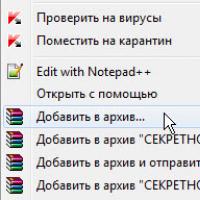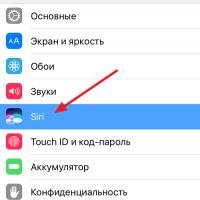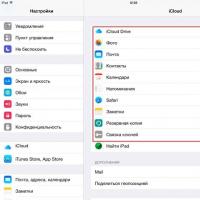Template for creating a webquest. Creation of webquests on the JIMDO platform. “The final stage of creating the quest “The Beatles” on the JIMDO platform”
Annex 1. About the webquest.
Webquest: a little history

Developing a solution to a pressing problem by reaching an agreement between different points of view.
There are differences among people on many issues due to different value systems, sources of reliable information, and ideological indoctrination.
In an imperfect world, it is helpful to expose students to differences in adult views and give them practice in dealing with them. For better or worse, current events from recent history provide many such opportunities for practice.
The essence of the task of achieving consensus is the requirement that different points of view be represented and clearly articulated. A well-designed consensus task:
- teaches students to consider different points of view by studying different sources; based on genuine disagreements; aims to create a general report that has a specific audience (real or simulated) and that is created in a format similar to those used in the world (for example, an official document, recommendations to certain government bodies, a memorandum of understanding, etc.).
Used materials
1. Education World. Interview with B. Dozhd http://www. /a_issues/chat/chat015.shtml
2. Dodge B. Some Thoughts About WebQuests (Some thoughts on the topic "Web-quest"). . http://webquest. sdsu. edu/about_webquests. html
3. Dodge B. WebQuest Taskonomy: A Taxonomy of Tasks http://webquest. sdsu. edu/taskonomy. html
4. Concept to Classroom. Workshop: Webquests http://www. thirteen. org/edonline/concept2class/webquests/index. html
5. Teachnology Tutorials. Webquests (Web quest: educational technologies) http://www. /tutorials/web_quests/
6. Webquest. org http://webquest. org/index-resources. php
7. Teacher Tap: Webquests http:///tap/topic4.htm
Why is this technology needed?
Before modern education The task is to search for new types and forms of organizing educational activities. Education should be developmental in terms of developing independent critical and creative thinking. For this purpose, many teachers have long been using project technology, using Internet resources. But the abundance of information on the Internet and its quality not only does not simplify the process of working on the project, but also complicates it. One of possible solutions This problem is a webquest technology.
What is a webquest?
Webquest in pedagogy is a problematic task, a project using Internet resources.
Webquest is a scenario for organizing student project activities on any topic.
What are the benefits of using this technology?
Webquest promotes:
searching the Internet for information that the teacher assigns to students,
development of students’ thinking at the stage of analysis, synthesis and evaluation of information,
developing students’ computer skills and increasing their vocabulary,
encouraging students to learn independently of the teacher,
development of students' research and creative abilities,
increasing personal self-esteem.
What items is this technology suitable for?
The advantage of this technology is that it is applicable to any school subject.
Let's look at examples of webquests in various school disciplines:
This technology is suitable for organizing classroom individual or group work, as well as for extracurricular work.
Webquest
Webquest as a way to enhance students' learning activities.
Download:
Preview:
WEB-QUEST TECHNOLOGY
AS AN INTERACTIVE EDUCATIONAL ENVIRONMENT
The rapid growth in the volume of information that needs to be mastered requires the creation and use of new effective teaching tools.
In pedagogy, there are several teaching models:
- passive - the learner acts as an “object” of learning (listens and watches);
- active - the student acts as a “subject” of learning (independent work, creative tasks);
- interactive - the student becomes the subject of interaction, he himself actively participates in the learning process, following his own individual route.
Modern education faces the task of searching for new types and forms of organizing educational activities. Education should be developmental in terms of developing independent critical and creative thinking. For this purpose, many teachers have long been using project technology, using Internet resources. But the abundance of information on the Internet and its quality not only does not simplify the process of working on the project, but also complicates it. One of the possible solutions to this problem is webquest technology.
A webquest is an example of organizing an interactive educational environment.
An educational webquest is an Internet site that students work with to complete one or another educational task. Webquest (webquest) is a problem task with elements role playing game. The purpose of work in this educational environment: to organize competent work of students on the Internet, while developing key competencies. A webquest is a product of joint activity between a teacher and students. The result of working with a webquest is the publication of mini-projects in the form of web pages and websites (locally or on the Internet).
A webquest has a certain structure.
Webquest structure
Introduction - a clear introduction, which clearly describes the main roles of the participants or the quest scenario, a preliminary work plan, and an overview of the entire quest.
Exercise , which is understandable, interesting and doable. The final result of independent work is clearly defined (for example, a series of questions are asked that need to be answered, a problem is spelled out that needs to be solved, a position is defined that must be protected, and other activities are indicated that are aimed at processing and presenting the results based on the collected information).
Resources - list information resources(in electronic form - on CDs, video and audio, in paper form, links to Internet resources, website addresses on the topic) necessary to complete the task. This list must be annotated.
Work process - a description of the work procedure that must be completed by each quest participant when completing the task independently (stages).
Grade - description of the criteria and parameters for evaluating the webquest. Evaluation criteria depend on the type of educational tasks that are solved in the webquest.
Conclusion - a section that summarizes the experience that participants will gain when working independently on a webquest. Sometimes it is useful to include rhetorical questions at the conclusion that encourage students to continue their experiments in the future.
When working on a webquest, a number of competencies develop:
- use of information technologies to solve professional problems (including searching for necessary information, formatting work results in the form of computer presentations, websites, flash videos, databases);
- self-learning and self-organization;
- team work (planning, distribution of functions, mutual assistance, mutual control);
- the ability to find several ways to solve a problem situation, determine the most rational option, and justify your choice;
- public speaking skills (it is mandatory to conduct pre-defenses and defenses of projects with speeches by authors, with questions, discussion
The students' work was carried out in several stages. At the first stage, the webquest gives students the opportunity to choose their role: theorist or practitioner. Having decided, the student strictly follows the chosen route
So using webquest guys
- learn to obtain knowledge independently, organize work according to an algorithm;
- acquire skills using various types of activities, such as: searching and systematizing information on a topic, conducting research in an educational environment, formulating the identified pattern in the form of a hypothesis, proving it and presenting the results of the work;
- in the process of work they are placed in a situation of choosing a role, topic, resources;
- learn to use various information sources: textbook materials, resources posted on the Internet
I believe that a web quest is a convenient form of work for enhancing learning activities and increasing interest in the subject.
How to create a webquest
Step 1: define a topic.
Step 2: select a site that has a matrix (template) for creating a webquest.
Step 3: come up with tasks. First, choose the form in which students will receive the assignment. There are several options:
- In the form of a presentation. (eg. PowerPoint program- extension.ppt ) Place a picture on the slide and write one or two questions. So on each slide you can consider a specific topic.
- In the form of text. (eg. Word program- extension.doc ). We place information with pictures and questions in the form of formatted text on an A4 or A3 sheet of paper.
- Visual material. It looks like a set of pictures, photographs, caricatures. (you can attach it as an archive - extension.zip , since the size of applications is limited).
Step 4: come up with a rating system.
- The number of points awarded for a particular question.
- What number of points corresponds to what level. (eg 5 points – good).
- If there is no one specific answer, then describe how to evaluate an oral story if it is reasoned, supplemented by your own knowledge, or, on the contrary, incomplete and inaccurate.
Step 5: Find sources of information that students will use to find answers.
Step 6: Having a rough plan and basic information on the sheet, proceed to posting the webquest on the site.
When all pages are completed. The webquest is ready for publication, after which it will become available to other users.
As mentioned above, to conduct a web quest, you can prepare web pages in advance, and the results of any project can be posted on a website or blog. Now there are many opportunities and technologies for making maximum use of the Internet in educational activities.
First you need to determine where it is best to place the project:
on a website or blog.
Review of the most popular free blogging services:
- WordPress
- LiveJournal or Live Journal
- LiveInternet
- Blog.ru
- blogspot.com
- Mail.ru
Don't be afraid to start. The technology for creating blogs is clear. In addition, each service must have a “Help” section.
Web quest Web quest is an example of organizing an interactive educational environment. An educational webquest is an Internet site that students work with to complete one or another educational task. A webquest is a challenging task with role-playing game elements.
Webquest structure Introduction A task that is understandable, interesting and doable. Resources Work process Evaluation Conclusion
Competencies: use of information technologies to solve professional problems; self-learning and self-organization; teamwork; the ability to find several ways to solve a problem situation, determine the most rational option, and justify your choice; public speaking skill
How to Create a WebQuest Step 1: Determine the Topic. Step 2: choosing a site. Step 3: task. options: in the form of a presentation; as text; visual material. Step 4: Come up with a grading system. Step 5: Find sources of information that students will use to find answers. Step 6: Having a rough plan and basic information on the sheet, proceed to posting the webquest on the site.
Review of popular free blogs WordPress services LiveJournal or Live Journal LiveInternet Blog.ru Blogspot.com Mail.ru
Review of free website builders with hosting Websites Google Yandex. People. Ucoz. Free website builder
Retelling – demonstrating understanding of a topic based on presentation
materials from different sources in a new format: creation
presentation, poster, story.
Planning and design – developing a plan or project for
based on specified conditions.
Self-knowledge – any aspects of personality research.
Compilation – transformation of the format of information obtained from
different sources: creating a cookbook, virtual
exhibitions, time capsules, cultural capsules.
Creative task - creative work in a certain genre - creation
plays, poems, songs, videos.
Analytical task – searching and systematizing information.
Detective, puzzle, mysterious story - conclusions based on
contradictory facts.
Reaching consensus – developing a solution to a pressing problem.
Evaluation – substantiation of a certain point of view.
Journalistic investigation – objective presentation of information
(separation of opinions and facts).
Persuasion - persuading opponents to your side or neutral
tuned persons.
Scientific research – study of various phenomena, discoveries, facts
based on unique online sources.
Web quests can be short-term or long-term.
The goal of short-term projects is to acquire knowledge and integrate it into your knowledge system. Working on a short-term web-quest can take from one to three sessions. They can be easily used in school lessons in many subjects.
Long-term web-quests are aimed at expanding and clarifying concepts. Upon completion of work on a long-term web-quest, the student must be able to conduct a deep analysis of the knowledge gained, be able to transform it, and master the material enough to be able to create tasks for work on the topic. Work on a long-term web-quest can last from one week to a month, maybe for a quarter or even an academic year.
The advantage of webquests is the use of active learning methods. A webquest can be designed for both group and individual work.
It should be noted that learning using web quest technology allows you to increase interest in the topic being studied and increase motivation.
Some additions:
Web quests are best suited for small groups, but there are also web quests designed for individual students.
Additional motivation when completing a web quest can be created by asking students to choose roles (for example, scientist, journalist, detective, architect, etc.) and act in accordance with them.
A Web quest can concern one subject or be cross-subject. The researchers note that in the second case, this work is more effective.
Web quest forms can also be different.
Creation of a database on the problem, all sections of which are prepared by students.
Creating a microworld in which students can navigate using hyperlinks, simulating physical space.
Writing an interactive story (students can choose options for continuing work; for this, two or three possible directions are indicated each time; this technique is reminiscent of the famous choice of a road at a road stone by Russian heroes from epics).
Create a document that provides an analysis of a complex problem and invites students to agree or disagree with the authors' opinions.
On-line interview with a virtual character. Answers and questions are developed by students who have studied the individual in depth. This work option is best offered not to individual students, but to a mini-group that receives an overall grade (given by the rest of the students and the teacher) for their work. Feich
Sections: General pedagogical technologies
Now in educational institutions, the majority of students freely use modern information technology, this makes it easier for them to find information, process it and present it in various presentation forms. Therefore, the use of a computer in students’ project activities as a creative tool contributes to the achievement of several goals:
- increasing motivation for self-learning;
- formation of new competencies;
- realization of creative potential;
- increasing personal self-esteem;
- development of personal qualities that are not in demand in the educational process (for example, poetic, musical, artistic abilities).
Currently, in various fields of activity, there is a shortage of specialists who are able to solve emerging problems independently and in a team, and to do this using the Internet. Therefore, the work of students in this type of project activity, such as a web quest, diversifies the learning process, making it lively and interesting. And the experience gained will bear fruit in the future, because while working on this project a number of competencies are developed:
- using IT to solve professional problems (including searching for necessary information, formatting work results in the form of computer presentations, websites, flash videos, databases, etc.);
- self-learning and self-organization;
- team work (planning, distribution of functions, mutual assistance, mutual control);
- the ability to find several ways to solve a problem situation, determine the most rational option, and justify your choice;
- public speaking skills (it is mandatory to conduct pre-defenses and defenses of projects with speeches by authors, with questions, discussions).
So, what is a webquest?
“An educational web quest is an Internet site that students work with to complete one or another educational task. Such web quests are being developed to maximize the integration of the Internet into various educational subjects at different levels of study in the educational process. They cover a separate problem, academic subject, topic, and can also be interdisciplinary. There are two types of web quests: for short-term (goal: deepening knowledge and their integration, designed for one to three lessons) and long-term work (goal: deepening and transforming students’ knowledge, designed for a long period - maybe for a semester or academic year ). A feature of educational webquests is that some or all of the information for students to work with independently or in groups is located on various websites. In addition, the result of working with a web quest is the publication of students’ work in the form of web pages and websites (locally or on the Internet)” (Bykhovsky Y.S. “Educational Web Quests”).
The developers of the webquest as an educational task are Bernie Dodge, professor of educational technologies at the University of San Diego (USA). He defined the following types of tasks for web quests.
- Retelling – demonstration of understanding of the topic based on the presentation of materials from various sources in new format: creating a presentation, poster, story.
- Planning and design – development of a plan or project based on specified conditions.
- Self-knowledge – any aspects of personality research.
- Compilation – transformation of the format of information received from different sources: creation of a book of culinary recipes, a virtual exhibition, a time capsule, a cultural capsule.
- Creative task – creative work in a certain genre - creating a play, poem, song, video.
- Analytical task – search and systematization of information.
- Detective, puzzle, mystery story – conclusions based on contradictory facts.
- Reaching Consensus – developing a solution to a pressing problem.
- Grade – substantiation of a certain point of view.
- Journalistic investigation – objective presentation of information (separation of opinions and facts).
- Belief – winning opponents or neutral-minded people over to your side.
- Scientific research – study of various phenomena, discoveries, facts based on unique online sources.
The structure of the webquest, requirements for its individual elements
Clear introduction , where the main roles of the participants or the quest scenario, a preliminary work plan, and an overview of the entire quest are clearly described.
Central task , which is understandable, interesting and doable. The final result of independent work is clearly defined (for example, a series of questions are asked that need to be answered, a problem is spelled out that needs to be solved, a position is defined that must be protected, and other activities are indicated that are aimed at processing and presenting the results based on the collected information).
List of information resources (in electronic form - on CDs, video and audio media, in paper form, links to Internet resources, website addresses on the topic) necessary to complete the task. This list must be annotated.
Description of operating procedure , which must be completed by each quest participant when completing the task independently (stages).
Description of criteria and parameters for evaluating a webquest . Evaluation criteria depend on the type of educational tasks that are solved in the webquest.
Guide to action (how to organize and present the collected information), which can be presented in the form of guiding questions that organize educational work (for example, related to determining the time frame, general concept, recommendations for the use of electronic sources, presentation of “blanks” of web pages, etc.) .
Conclusion , which summarizes the experience that participants will gain when working independently on a webquest. Sometimes it is useful to include rhetorical questions at the conclusion that encourage students to continue their experiments in the future.
Stages of working on the quest
First stage(command)
Students become familiar with the basic concepts of the chosen topic and materials from similar projects.
Roles in the team are distributed: 1-4 people per role.
All team members should help each other and teach each other how to work with computer programs.
Role stage
Individual work in a team for a common result. Participants simultaneously complete tasks in accordance with their chosen roles. Since the goal of the work is not competitive, in the process of working on the web quest, team members mutually learn skills in working with computer programs and the Internet. The team jointly sums up the results of each task, the participants exchange materials to achieve a common goal - creating a website.
1) searching for information on a specific topic;
2) development of the site structure;
3) creation of materials for the site;
4) finalization of materials for the site.
The final stage
The team works together, under the guidance of a teacher, and feels responsible for the research results published on the Internet.
Based on the results of the study of the problem, conclusions and proposals are formulated. A competition of completed works is held, where the understanding of the task, the reliability of the information used, its relationship to a given topic, critical analysis, logic, structure of information, definiteness of positions, approaches to solving the problem, individuality, and professionalism of presentation are assessed. Both teachers and students take part in evaluating the results through discussion or interactive voting.
The actual placement of webquests on the Internet can significantly increase student motivation to achieve the best educational results.
Criteria for assessing student work
Great |
Fine |
Satisfactorily |
|
Understanding the task |
The work demonstrates an accurate understanding of the task. |
Both materials directly related to the topic and materials unrelated to it are included; A limited number of sources are used. |
Materials not directly related to the topic are included; one source is used, collected information not analyzed or evaluated. |
Completing the task |
Works from different periods are evaluated; conclusions are reasoned; all materials are directly related to the topic; sources are cited correctly; information from reliable sources is used. |
Not all information is taken from reliable sources; Some of the information is inaccurate or not directly relevant to the topic. |
Random selection of materials; information is inaccurate or irrelevant to the topic; incomplete answers to questions; no attempt is made to evaluate or analyze the information. |
Result of work |
Clear and logical presentation of information; All information is directly relevant to the topic, accurate, well structured and edited. A critical analysis and assessment of the material and a definite position are demonstrated. |
Accuracy and structure of information; attractive design of the work. One’s own position and assessment of information is not sufficiently expressed. The work is similar to other student work. |
The material is not logically structured and presented in an outwardly unattractive manner; no clear answer is given to the questions posed. |
Creativity |
Presented different approaches to solving the problem. The work has a strong personality and expresses the point of view of a microgroup. |
One point of view on the problem is demonstrated; comparisons are made but no conclusions are drawn. |
The student simply copies information from the suggested sources; there is no critical look at the problem; the work has little to do with the topic of the webquest. |
Experience shows that the most severe judges of work are the students themselves. It is important here at the final stage, when the completed work is publicly presented, to organize a constructive discussion. Open evaluation of your own work and the work of your colleagues allows you to learn to be correct in making comments, identify the most interesting findings in completed tasks, and formulate your own evaluation criteria.
At the end of work on the project, after summing up the results, it is important to use material and moral incentives for high results.
Examples of webquests
All students sooner or later have to defend their coursework and then their theses. At the same time, there are always more questions about how to do this than answers.
In the Top 10 fears of humanity, death is in 6th place, and fear of public speaking is in 1st!!!
The quest “Self-instruction manual for defending a thesis (course) work” that I developed will help you understand the main aspects of preparing and defending student work.
Various experts will present their point of view on such an event as the public defense of works, and will give advice and recommendations to everyone.
The task of the quest participants is to determine their role and develop recommendations, requirements, and advice to students preparing to defend their work. After summarizing the results of all participants in the quest, you will get a “Self-instruction manual for defending your thesis (course) work,” which will be used by senior college students.
When choosing a role, you can focus on your inclinations, interests, or vice versa - try yourself in an unusual situation.
Roles of quest participants:
Psychologist is responsible for the psychological and emotional state of the speaker. His main task is to give practical advice to overcome anxiety and activate the attention of listeners. The Psychologist will also find out the influence of extra-linguistic means on the general perception of the speech.
Task designer – give advice on making electronic presentations and handouts.
Russian language specialist will give advice on the use of linguistic means of expressiveness, suggest accepted speech patterns used when defending a thesis (course work), and warn against incorrect pronunciation of frequently used words.
Reviewer focuses on the criteria for evaluating performances, and suggests techniques for reducing the negative impact of comments.
"Experienced
» will present advice from teachers, graduates and senior students who defended their projects, share signs and entertain with student stories.
I suggest this quest be completed by first-year college students (i.e., kids who entered college after 9th grade and are still studying school subjects). This allows you to diversify the learning process and prepare students in advance for upcoming public defenses of their work. The emphasis on the fact that we are preparing a tutorial for senior college students, inviting senior students to the final stage (presenting the results of the project) gives freshmen a sense of responsibility for the product provided, a sense of the importance of their work.
You can find out more about this webquest on the Internet at www.kbk-wq.h17.ru
A new web quest about our native land is currently in development. The roles of this quest: historian, geographer, economist, politician, businessman, keeper of legends and tales, bibliographer...
Students in various subjects comprehensively study Kaliningrad and the region, find and present very interesting materials. Therefore, we decided to combine this work into a single project.
In conclusion, I would like to provide links to some webquests. From my own experience I can say that only after viewing at least a few similar works can you be inspired to create your own project. And this work is both useful and interesting, truly activating learning activities.
Examples of quests on the School Sector website.
Description of the presentation by individual slides:
1 slide
Slide description:
Web quest technology The work was carried out by the teacher of the Municipal Educational Institution “Secondary School No. 3” in Gremyachinsk, Perm Territory, T. A. Nemykina.
2 slide
Slide description:
Web quest from the English “webquest” – “Internet search”.
3 slide
Slide description:
Webquest (webquest) is a modern educational technology that involves targeted search activities of students using Internet information resources to complete a specific educational task.
4 slide
Slide description:
5 slide
Slide description:
6 slide
Slide description:
compilation journalistic riddles design creative retelling Solving controversial problems scientific WEB-QUEST TASKS TREE self-knowledge beliefs analytical evaluative BY TYPE OF TASKS BY DURATION OF COMPLETION short-term long-term BY SUBJECT CONTENT mono-project Interdisciplinary quest
7 slide
Slide description:
Retelling is a demonstration of understanding of a topic based on the presentation of materials from different sources in a new format: creating a presentation, poster, story. Planning and design - developing a plan or project based on given conditions. Self-knowledge – any aspects of personality research. Compilation is the transformation of the format of information obtained from different sources: creating a book of culinary recipes, a virtual exhibition, a time capsule, a cultural capsule. A creative task is creative work in a certain genre - the creation of a play, poem, song, video. The analytical task is the search and systematization of information. Detective, puzzle, mysterious story - conclusions based on contradictory facts. Achieving consensus is developing a solution to a pressing problem. Evaluation is the substantiation of a certain point of view. Journalistic investigation is an objective presentation of information (separation of opinions and facts). Persuasion is the process of persuading opponents or neutral persons to one’s side. Scientific research is the study of various phenomena, discoveries, facts based on unique online sources.
8 slide
Slide description:
Web quest forms can also be different. Here are the most popular ones: Creating a database on the problem, all sections of which are prepared by students. Creating a microworld in which students can navigate using hyperlinks, simulating physical space. Writing an interactive story (students can choose options for continuing work; for this, two or three possible directions are indicated each time; this technique is reminiscent of the famous choice of a road at a road stone by Russian heroes from epics). Create a document that provides an analysis of a complex problem and invites students to agree or disagree with the authors' opinions. On-line interview with a virtual character. Answers and questions are developed by students who have studied the individual in depth. (This could be a politician, a literary character, a famous scientist, an alien, etc.) This work option is best offered not to individual students, but to a mini-group that receives an overall grade (given by the rest of the students and the teacher) for their work.
Slide 9
Slide description:
Webquest structure 1.Introduction - short description webquest topics. 2.Task - formulation of the problem task and description of the form of presentation of the final result. 3.Work order and required resources - description of the sequence of actions, roles and resources required to complete the task (links to Internet resources and any other sources of information), as well as supporting materials (examples, templates, tables, forms, instructions, etc. .p.), which allow you to more efficiently organize work on the webquest. 4.Evaluation - a description of the criteria and parameters for evaluating the completion of the webquest, which is presented in the form of an evaluation form. Evaluation criteria depend on the type of educational tasks that are solved in the webquest. 5.Conclusion - a brief description of what students will learn by completing this webquest. 6.Materials used - links to resources used to create the webquest. 7.Comments for the teacher - methodological recommendations for teachers who will use the webquest
10 slide
Slide description:
The criteria for the methodological evaluation of web quests are: Introduction - motivating and educational value. The task is problematic, clear in formulation, cognitive value. The order of work and the necessary resources - an exact description of the sequence of actions; relevance, diversity and originality of resources; variety of tasks, their focus on the development of high-level thinking skills; availability of methodological support - auxiliary and additional materials to complete tasks; when using elements of a role-playing game - an adequate selection of roles and resources for each role.
11 slide
Slide description:
When working on webquests, project participants evaluate themselves and their teammates. Recommends using from 4 to 8 criteria, which may include assessment of: research and creative work, quality of argumentation, originality of work, skills in working in a small group, oral presentation, multimedia presentation, written text, etc.
12 slide
Slide description:
The role of the teacher (organizer, coordinator, consultant) Correctly model strategies for solving a specific task, guide students, create a relevant, meaningful learning situation for students.
Slide 13
Slide description:
Stages of students working with the quest Familiarization with its purpose and objectives. Distribution of roles between group members. Familiarization with the evaluation criteria for both individual activities and the joint final product. Independent activity of searching and compiling information. Joint activities of group members to prepare the final product of the quest. Presentation of the final product in front of classmates. Self-reflection stage.
Slide 14
Slide description:
The webquest helps to -increase motivation for self-learning; -formation of new competencies; -development of creative potential; -increasing personal self-esteem; -development of personal qualities that are not in demand in the educational process (poetic, musical, artistic abilities).
15 slide
Slide description:
The result of completing quest tasks should not be mindless copying of fragments of found information, but its critical understanding by students, processing in order to form new knowledge.
16 slide
Slide description:
Result of the webquest The final project of the webquest can be presented in the form of a presentation, report, theatrical performance, article, etc. Working with the webquest affects the value system of students and their moral qualities. An atmosphere of cooperation is created.
Slide 17
Slide description:
The theoretical basis of the quest as an educational technology is critical and creative thinking; -problem-based learning; situationally based learning in authentic conditions; - group training.
18 slide
Slide description:
Characteristics of a quest as a way of organizing student project activities Web quest is a group activity that involves productive interaction of all participants to achieve a common goal, creating a common final research product; The motivational moment of the quest is the distribution of roles between its participants, when each of them performs a specific function, being responsible for one or another type of activity; A webquest can be created within one subject or be cross-disciplinary, using the basic knowledge of students from different fields of science.
Slide 19
Slide description:
Web quest. High motivational security. Avoiding traditional tasks of the same type, posing relevant questions and problems arouses students’ interest and increases motivation. Students do not deal with just one textbook, but gain access to search engines, latest news. They can get the opinion of experts. Working in a group, recognizing oneself as a necessary part of the whole, imposes responsibility on the student to the rest of the class. At the stage of group work, the transformation of facts obtained from the Internet into new knowledge takes place. . The opportunity to present the final product in front of an audience and publish it on the Internet encourages students to put in maximum effort.
20 slide
Slide description:
Webquest in the classroom. The teacher spends a minimum of teaching time, covering a maximum of material due to the formulation of a specific quest task; The presence of accessible and detailed steps and instructions for completing the task; Dividing student work into roles; Precisely prescribed tasks for each participant, the presence of leading questions and links to Internet sources; Access to assessment criteria for both individual and group work.
21 slides
Slide description:
Working on a webquest develops the following competencies: Informational: work with information, analyze, summarize it, establish associations with what has been previously studied, draw conclusions. Projective: generate ideas, find solutions to a problem, anticipate the possible consequences of decisions made. Communicative: enter into communication, defend your point of view. Interactive: cooperate with others, accept their point of view, trust partners, be responsible for the results of your work. Media: ability to work with computer tools.
22 slide
 Order 343 mail. Order by Russian post. Consequences of failure to appear in court when summoned
Order 343 mail. Order by Russian post. Consequences of failure to appear in court when summoned How to put a password on a folder on a Windows computer without and with programs
How to put a password on a folder on a Windows computer without and with programs Pluton – Free Bootstrap HTML5 One Page Template
Pluton – Free Bootstrap HTML5 One Page Template History of ZX Spectrum: Myths and reality New Spectrum
History of ZX Spectrum: Myths and reality New Spectrum Voice assistant Siri from Apple Siri functions on iPhone 6s
Voice assistant Siri from Apple Siri functions on iPhone 6s How to roll back to a previous version of iOS?
How to roll back to a previous version of iOS? Unlock iPad in four days
Unlock iPad in four days